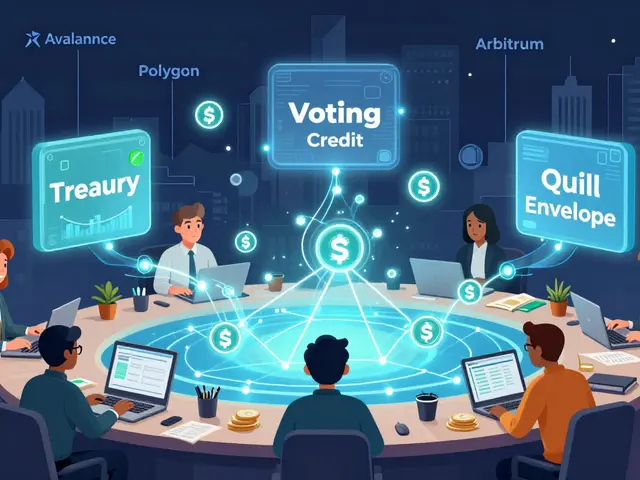OpenZeppelin – Your Blueprint for Secure Smart Contracts
When working with OpenZeppelin, a leading open‑source library that provides battle‑tested building blocks for blockchain applications. Also known as OpenZeppelin Contracts, it enables developers to write safer Solidity code, follow industry standards, and speed up deployment. OpenZeppelin sets the baseline for security across many DeFi projects, NFT platforms, and token launches.
How OpenZeppelin Connects to Core Blockchain Components
The library’s core is a collection of smart contracts, each implemented in Solidity and designed to be modular, reusable, and upgradeable. By leveraging these contracts, developers inherit proven patterns for ERC‑20, the most common token standard for fungible assets, and for newer standards like ERC‑721 and ERC‑1155. The relationship is clear: OpenZeppelin provides the reference implementation of ERC‑20, which many token projects copy or extend. This reduces bugs and aligns projects with community‑accepted best practices.
Security isn’t just about code reuse; it’s about verification. OpenZeppelin also offers a dedicated audit service that reviews smart contract code, identifies vulnerabilities, and issues a formal audit report. Audits feed back into the library, prompting patches and upgrades that benefit the whole ecosystem. Hence, the triple connection—OpenZeppelin supplies contracts, defines ERC‑20 behavior, and backs it up with audits—creates a virtuous cycle of trust.
Beyond the library, the OpenZeppelin ecosystem includes tools like Defender for automated transaction management and the Contracts Wizard for quick scaffolding. These tools bridge the gap between development and deployment, allowing teams to focus on product logic instead of low‑level security details. Whether you’re launching a new token, building a lending protocol, or designing a supply‑chain tracker, OpenZeppelin’s modules serve as the foundation you can rely on.
In the articles below you’ll see how OpenZeppelin’s components intersect with real‑world use cases: airdrop mechanics, exchange security reviews, regulatory impacts, and DeFi lending protocols. The collection gives you both the theory behind secure contract design and practical insights you can apply today. Dive in to discover concrete examples, step‑by‑step guides, and the latest trends shaping the OpenZeppelin landscape.
Access Control Vulnerabilities in Smart Contracts: Risks, Real‑World Hacks & Secure Fixes
Learn why access control flaws cost millions, see real DAO and Parity hacks, and get a practical checklist using OpenZeppelin, AChecker, and formal verification.





